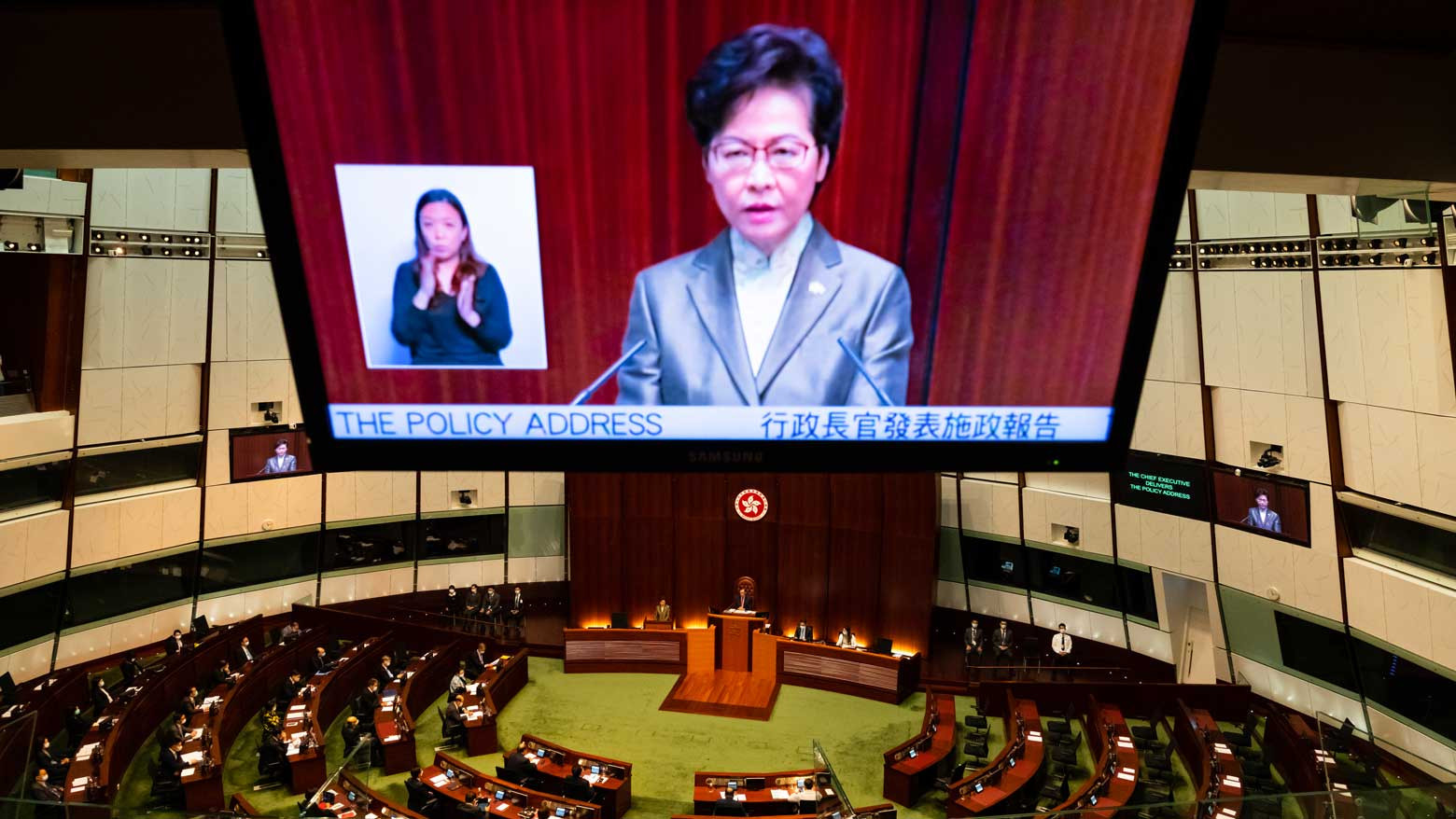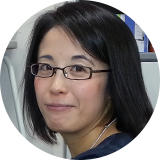Joshua Wong, Agnes Chow, and Ivan Lam have been icons of the democracy movement for years, both in Hong Kong and abroad. Now they are behind bars. A Hong Kong court sentenced Wong to 13-and-a-half months in prison for his role in an unauthorized rally near the police headquarters in June last year. Chow was sentenced to ten months, and Lam seven months. These were some of many pending legal cases against pro-democracy activists.
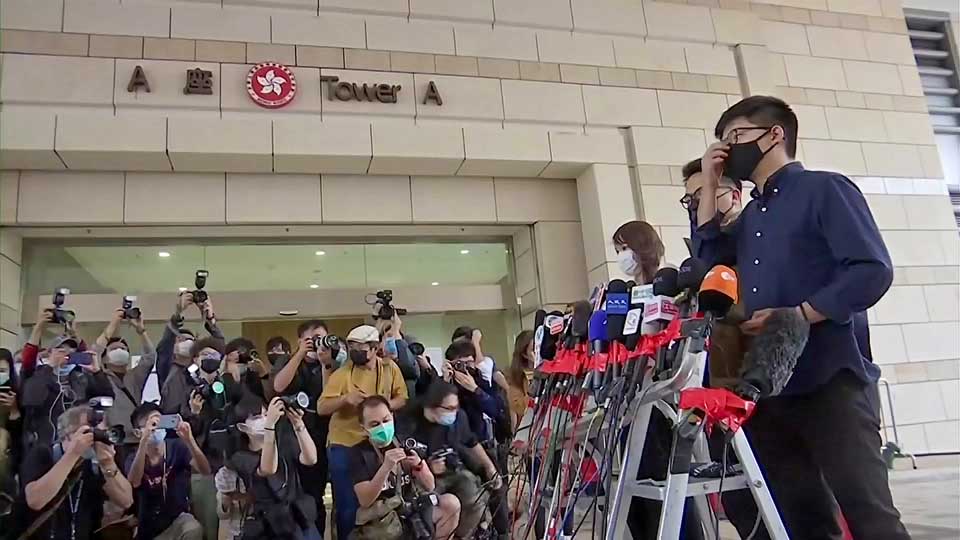
Last month, Beijing introduced legislation allowing for the disqualification of anyone deemed a threat to national security. It took just moments for Hong Kong's government to enforce it, disqualifying four lawmakers. The rest of the pro-democracy lawmakers responded by resigning en masse.
Kwok Ka-Ki was one of the four expelled. As a lawmaker of 12 years, he has worked to safeguard the “one country, two systems” policy and bring about universal suffrage. Kwok belongs to a moderate wing of the pro-democracy camp. He has empathized with the young people who took part in anti-government protests, but urged them to steer clear of violent acts and clashes with the police.
Kwok says he was disqualified because his party had been calling for the enactment of a US bill requiring Washington to support human rights and pro-democracy activities in Hong Kong.
Under Beijing’s new criteria, Legislative Council members immediately lose their status if they ask foreign forces to interfere in Hong Kong’s affairs. Kwok insists his actions do not constitute collusion with other countries. He says China’s actions are ridiculous.
Of the 43 lawmakers left in the chamber, 41 support Beijing. Professor Kurata Toru, an expert on Hong Kong politics at Tokyo’s Rikkyo University, says any hopes of a peaceful democratization of Hong Kong have been crushed. “The Chinese government has clarified its stance: The ‘one country, two systems’ policy applies only to the economy – not politic,” he says.
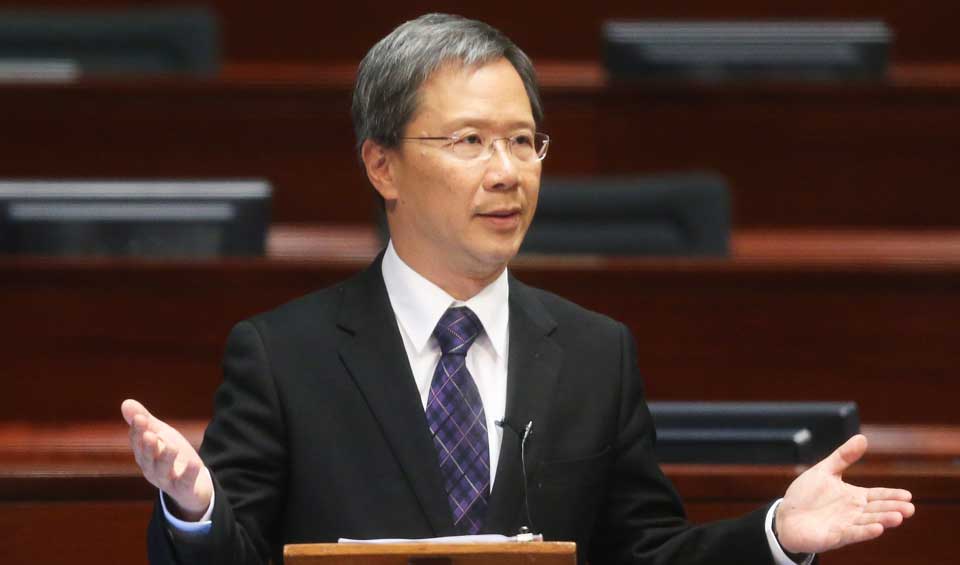
Rise of the localists
Beijing is also cracking down on the so-called localists who want self-determination for Hong Kong. Their ranks have been expanding rapidly thanks to a groundswell of youth support.
Fergus Leung, who was elected to a district council for the first time in 2019, is one such localist. He says he found his calling in 2012, when a staffer at a luxury brand shop in downtown Hong Kong let a traveler from the mainland take photos, but stopped a Hong Kong resident from doing the same.
“It’s ridiculous,” says the 23-year-old. “Why did Hong Kongers become inferior to mainlanders? I’ve been thinking about the relationship between Hong Kongers and Chinese ever since.”
A recent opinion poll by a research unit of the Chinese University of Hong Kong suggests that support for the localists has more than doubled over the past year among those aged 15 to 29.
Authorities have taken notice. Police targeted the localists first after the controversial Hong Kong National Security Law came into force earlier this year. About 90 were arrested during protests on October 1, China’s National Day. Authorities said they were taking part in an illegal gathering.
Leung was disqualified from the Hong Kong legislative election that was scheduled for September this year, but then postponed. He now says there is no hope of winning democracy in the legislature. “The law has made it difficult to seek help from the international community. Protests on the streets have lost momentum, too. How can we continue our protests? I’ve been searching for the answer,” he says.
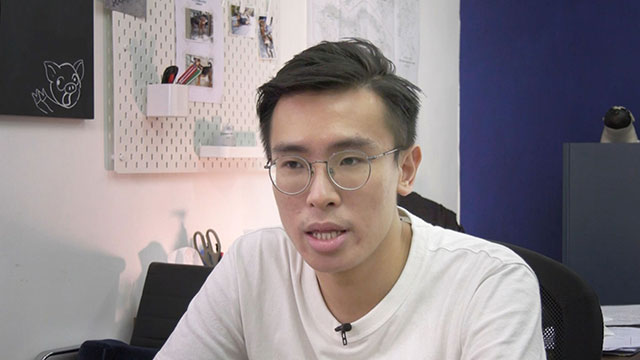
Hong Kong’s resilience
Professor Kurata sees a sense of helplessness creeping in among the people. Yet he also says their resilience should not be underestimated. “Government control has always been loose in Hong Kong. It’s originally a free society,” he says. “Even if Beijing does try to implement information control and an ideology similar to that of the mainland, it will struggle to turn the people into ‘ideal’ citizens’.”
And in a message from prison, posted by his lawyers, Joshua Wong vowed that “all these pains and sufferings (will) only strengthen our courage and conviction for democracy and justice.”
